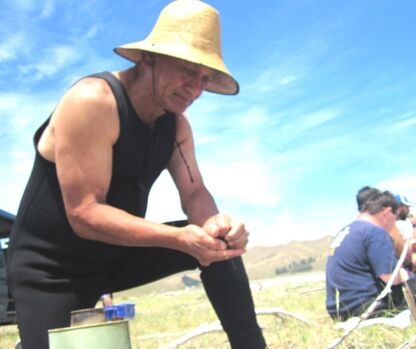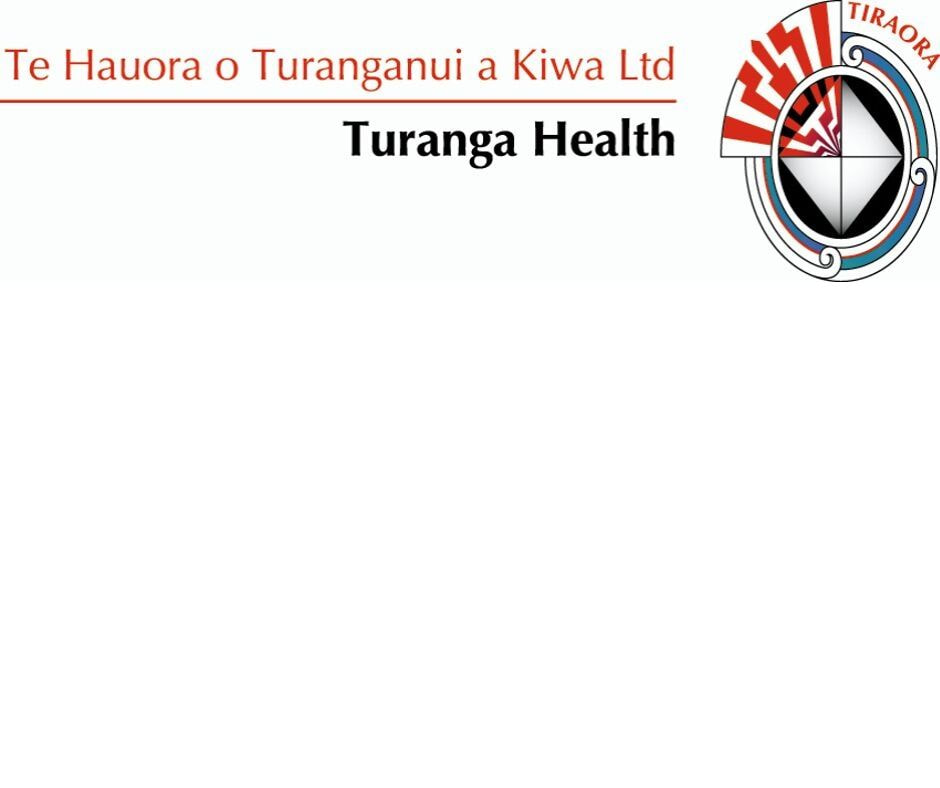 THE challenging days of the Covid-19 pandemic have changed how Turanga Health delivers care forever, chief executive Reweti Ropiha told directors at the company’s annual general meeting last month. Mr Ropiha says the disruption of Covid-19 turned out to be an accelerator of change as the Māori health organisation offered more care in real time like influenza vaccinations on a Saturday, doctor and nurse telephone consultations, and virtual exercise sessions during lockdown. “Whānau who previously considered the only way of receiving health services was by meeting their nurse or kaiāwhina face-to-face, found other ways to receive their care,” he says. “Whānau could interact with staff on the phone, use apps, online tools and video conferences. And in many cases, they found we could offer a far more responsive approach.” Mr Ropiha says many whānau now see and understand this to be an okay way to receive some of their health care. “We’ve had feedback on the new complementary ways of service delivery and in the process also discovered more about their needs. Who has wifi? Who has a shower over the bath? And who has support over the weekend? All this information helps us provide a more responsive service.” Mr Ropiha says If Covid-19 has taught the organisation one thing “it’s that no health system can stay stagnant. While existing health care methods won’t ever be replaced - new health care delivery models will certainly be retained to complement them.” Turanga Health board chairman Pene Brown says he and the other hauora directors were impressed with Turanga Health’s response to the challenging year and the leadership shown by chief executive Reweti Ropiha and the wider team. “Reweti’s sensible leadership in the past meant Turanga Health was ready to hit the ground running when it needed. Covid-19 was new to all of us but Turanga Health didn’t start from ground zero. With some subtle changes the organisation leapt into action providing care and services to enrolled whānau and others.” Turanga Health offers a range of wraparound community health services for all ages. It’s services such as fitness programmes, classes for new mums, and support for older people, are accessed by around 3,000 Māori and non-Māori living within the tribal boundaries of Rongowhakaata, Ngāi Tāmanuhiri, and Te Aitanga a Māhaki. The health organisation operates from a campus in Derby St and a general practice in Te Karaka which has just under 1600 patients enrolled. Turanga Health has one general practitioner, 10 nurses, and 30 community workers and kaiāwhina. Successful Turanga Health programmes include the Tū Mahi workplace wellness programme. In the year ended June 2020 mobile health staff provided wellness checks for 203 workers at 15 workplaces from its state-of-the-art mobile clinic. Twenty-three individuals were referred for nurse follow up. In the same time period 377 pēpi (babies) were referred to Turanga Health’s Well Child Tamariki Ora service. Forty-three percent of Māori babies were fully breastfed at six weeks with 40% reported to be still being breastfed at six months. During the company’s annual general meeting last month Mr Ropiha thanked the dedicated workers “that kept Turanga Health’s heart beating this year”. “Early and deserved praise must go to the nurses and kaiāwhina working in the community during the lockdowns.” He also thanked all Turanga Health funders and governance kaitiaki for the part they played during a most extraordinary 2020 year. Board chairman Pene Brown also paid tribute to health, social, and iwi organisations across the region that worked collaboratively with each other for the health and wellbeing of everyone in the region during the Covid-19 response. Turanga Health’s easily digestible annual report created as a concise way to learn about the company’s accomplishments.
5 Comments
 E ngā mana, e ngā reo, e ngā hau e whā. Tenā koutou, tēnā koutou katoa. Taku pepeha. Ki te taha o toku papa Ko Whiria te maunga Ko Hokianga te moana Ko Ngātokimatawhaoroa te waka Ko Rāhiri te tupuna Ko Pakanae te marae Ko Maraeroa te wharenui Ko Ngati Korokoro te hapu Ko Ngāpuhi te iwi Ki te taha o toku whaea Ko Putahi te maunga Ko Wairoro te awa Ko Ngātokimatawhaoroa te waka Ko Nukutawhiti te ariki Ko Parahirahi te pa Ko Te Kiore te tupuna Ko Kohewhata te marae Ko Puhimoana ariki te whare Ko Te Takatoke te hapu Ko Ngāpuhi te iwi Haumi ē! Hui ē! Tāiki ē! HIGHLY respected Vanessa Lowndes Centre tutor Guy Moetara has spent the past 20 years sharing his love of building and the outdoors with people managing intellectual, physical, and mental health disabilities. Before arriving at Turanga Health, Guy, Ngāpuhi, was a carpenter for over 30 years. He helped build the former Gisborne Post Office building on Grey St, and Tairāwhiti museum, as well as his own home and many other houses. By the time he was 50 he was due a break from scrambling up scaffolding and swinging a hammer in Gisborne’s heat. After a short stint at the freezing works he joined Tautoko Work Trust (as it was known back then) as a tutor. The trust was managed by Faye McMillan. Now known as Tautoko Support Services, the organisation helps people work towards a more fufulling life. It was a big change for Guy...and he loved it. “I enjoyed working with whānau. They make my life interesting and I love seeing how much they enjoy the opportunties we can offer.” Guy worked at the Trust for 10 years before the organisation had to reduce staff. Knowing he could probably find work again as a builder Guy stepped away from the Trust. But life has a funny way of working out and rather than becoming a tradesman again, he found himself at Turanga Health. “I walked in off the road and met Reweti Ropiha and told him I was looking for a job. He said bring me your CV on Monday...so I quickly created my first CV and handed it in!” Initially Guy worked with staff helping secure respite homes for people with mental health issues. During this time he observed the work going on next door at the Vanessa Lowndes Centre (VLC) which had recently come under the wing of Turanga Health. VLC programmes build confidence and prepare people with mental, physical or intellectual disabilities for employment. Programmes on offer include fitness and health, cooking and meal preparation, horticulture and gardening, numeracy and literacy. The centre has caring staff from a range of backgrounds and Guy was drawn to the work. He knew the satisfaction and pride that came from using your hands to build things and so very early on he wanted to share that passion with VLC whānau. Guy was supported to create a marae maintenance work programme. He and whānau carried out repair and maintenance work at marae around the rohe. Amid the speed and chaos of the modern world activities such as carpentry, farm work, and time spent outdoors “gave whānau a place where they could learn to do things for themselves”. “I could see that whānau felt a new sense of self worth, self-esteem, and a new-found confidence while doing this kind of work. They wanted to be out there and it opened their eyes up to their own abilities.” A highlight of Guy’s 20 years with VLC was teaching whānau how to save money for a special occasion. He helped whānau budget for an overseas holiday to Australia, set financial targets, and created fundraising opportunities. A year later he and other staff took groups to see the Lion King musical in Sydney and then Melbourne. They were trips of a lifetime and over the next few years other trips followed. “The point of it was that they had to put together a savings plan for over a year. We wanted their learning to be about the figures and about them individually taking charge. We taught them how to make money last and how to save.” Guy says he’s always enjoyed passing on his life skills and experiences to whānau, and people should never underestimate how much they can learn in return. “They have taught me patience. They have taught me that anything is possible,” he says, citing VLC superstars Jury Houkamau, Rita Cuthers, Aaron Harding, Jessica Kirwan, and Stacey Hohapata, who between them have achieved many study credits through the Eastern Institute of Technology. Some now hold down jobs in the community. “There are many others, too many to name, who have also achieved their goals and whom I want to acknowledge. They are all superstars in my eyes. They have revealed more to me about the need for community than I could ever have imagined, that we all have something important to bring to the world.” Turanga Health chief executive Reweti Ropiha has known Guy for years and remembers his leadership at Manutuke Marae running activities for kids. “We were lucky to have someone like him around.” Reweti says Guy started at VLC at a time when someone with outdoor experience and a passion for music and te ao Māori was the perfect fit. “He’s a deep thinker and a man of formidable patience. From fishing in the sea to the wise counsel he offers to those around him, Turanga Health and Vanessa Lowndes Centre have been very priviliged to have him on board. Congratulations on your 20 years.” Guy’s world changed this year when New Zealand went into lockdown. Aged 70 he had to stand down from work. While he was disappointed not to be contributing to Turanga Health’s mahi, he enjoyed the time at home with wife Raiha, his children and grandchildren. When asked what he will remember the most from lockdown, he becomes emotional, and searches for words to express his gratitude to those around him. “I want to particularly acknowledge Rongowhakaata Iwi Trust, Manutuke Marae and Turanga Health for their support of food and health packs delivered over the lockdown period. And I especially want to acknowledge all those essential workers who continued to work during March and April including Turanga Health staff who delivered so much help, health care and support to our whānau during that time.” |
Media Releases
Email us if you want to receive our media releases. Archives
February 2024
|


